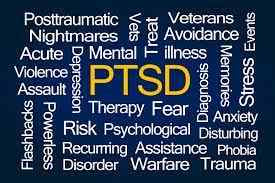What is an eating disorder?
Eating disorders are mental illnesses that affect your intake of food, thoughts and opinions on the subject and eating patterns. They often develop as a coping mechanism to manage difficult feelings. Some may be aware that this is what they’re doing, while others may not be. This blog post will be about eating disorder treatment in the UK, how it works, and the things that need to change.
How many people in the UK have an eating
disorder?
Approximately 725,000 people of all ages, genders, cultural or racial backgrounds in the United Kingdom are living with eating disorders. While this number is given, there could be many more suffering from eating disorders in silence, as a huge part of an eating disorder is the feeling of shame that can come with it.
What are symptoms of eating disorders?
Symptoms of eating disorders include food restriction, overeating, being very strict with diet, loss of control when eating, anxiety about eating around other people, eating in secret, eating in response to emotions, being obsessed with food, having body dysmorphia, monitoring weight very often. Alongside these symptoms people with eating disorders often experience a lot of anxiety, fatigue, difficulty concentrating, and may develop long-term physical health problems.
How would I go about getting eating
disorder treatment in the UK?
The first step to receiving eating disorder treatment in the UK, is to visit your GP. Explain to your GP the symptoms that concern you. As most GP surgeries are not equipped to deal with mental health problems, they should refer you to a mental health service. Depending on whereabouts you live, there may be a service nearby that specifically deals with eating disorders. Medication is not typically offered unless it will be alongside treatment. The treatment you receive depends on your eating disorder, the symptoms and the severity of them.
Currently, the NHS offers a guided self-help programme, in which you’re given a book to guide you through the process of changing your eating disorder behaviours. Alongside this, support sessions are given to discuss thoughts and monitor progress. The NHS also offers psycho-education, which will educate on your symptoms, triggers and how to manage difficult feelings in healthier ways.
Anorexia Treatment
Anorexia treatment can be different to the above. This is because when somebody has reached an extremely low weight, they not only need help around their behaviours but help and often supervision to restore their weight.
Controversy
The problem with eating disorder treatment in the UK is that often, whether you are taken seriously or not can depend on your BMI. Many who have anorexia, or display anorexic behaviours, may not be referred for treatment if their BMI isn’t low enough. This is partially due to lack of mental health resources. While BMI can be helpful to doctors to signify a problem, it is an out of date tool that cannot be applied to everybody. Everybody is different.
Some people may appear the same size but be different
weights. Being denied treatment for an eating disorder solely based on weight
not being ‘low enough’ is a trigger in itself, causing people to become more
ill. While treatment can be effective, the system doesn’t always allow it to
be, and this is its biggest flaw.



